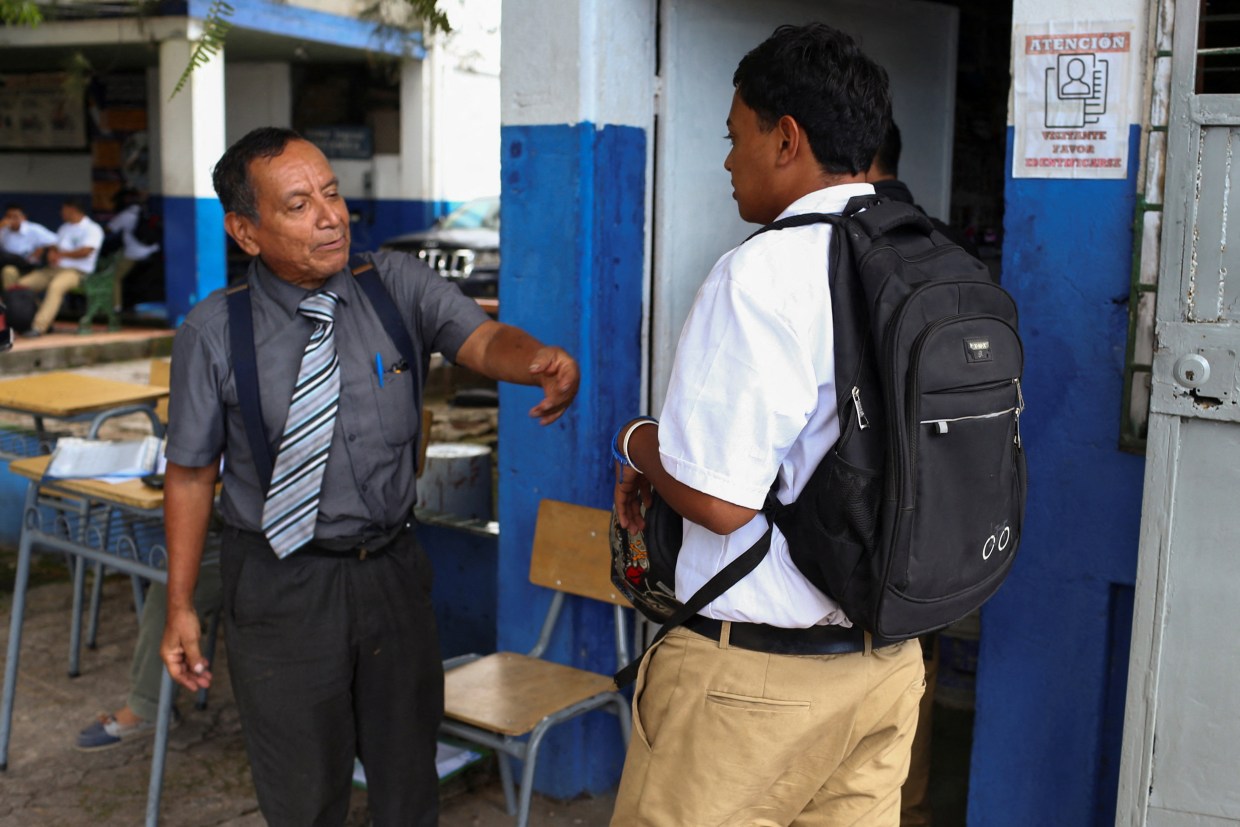A new adjustment in the education system of El Salvador has generated discussion among teachers, students, and parents. After a former military captain was named as the minister of education, schools have implemented fresh grooming rules, notably banning specific trendy hairstyles like mohawks and “Edgar” cuts.
The decision, aimed at promoting discipline and uniformity within academic institutions, reflects a broader effort to enforce stricter standards among students. The ministry’s directive argues that maintaining a neat and orderly appearance is essential for fostering a focused learning environment. According to officials, hairstyles considered distracting or non-traditional will no longer be tolerated in classrooms.
The ban targets styles like the “Edgar,” which features short, clean sides and a blunt fringe across the forehead, and mohawks, known for their bold, upright strip of hair running along the scalp. Both have gained popularity among younger generations across Latin America and the United States, becoming symbols of individuality and cultural expression.
Sin embargo, los críticos sostienen que estas limitaciones violan las libertades individuales y sofocan la creatividad. Las plataformas de redes sociales han sido escenario de intensas discusiones, con muchas personas cuestionando si los cortes de cabello realmente afectan el rendimiento académico. Tanto padres como estudiantes han expresado inquietudes de que las normas podrían desencadenar acciones disciplinarias innecesarias, mientras que otros piensan que el estilo personal no debería influir en la educación de un estudiante.
Supporters of the new policy argue that having a consistent appearance aids in decreasing bullying and social pressures associated with fashion tendencies. They assert that by restricting radical hairstyles, schools can minimize distractions and ensure students concentrate on their studies instead of style. The education ministry has stressed that the goal is not to hinder individuality but to create a setting that promotes learning.
This development occurs as El Salvador is implementing numerous changes under the current administration, with a heightened emphasis on structure and discipline within public organizations. Although comparable rules have been adopted in various nations, the extent of their application frequently differs depending on regional and educational institution policies.
Whether these actions will have a beneficial effect on student academic outcomes is still unclear. For the time being, pupils are anticipated to adhere to the regulations, and parents might have to reconsider their decisions regarding personal grooming for the next academic term.
The discussion surrounding this policy highlights a larger question: where should the line be drawn between personal expression and institutional regulations? As El Salvador moves forward with its new educational guidelines, the debate over balancing individuality with discipline is likely to continue.

